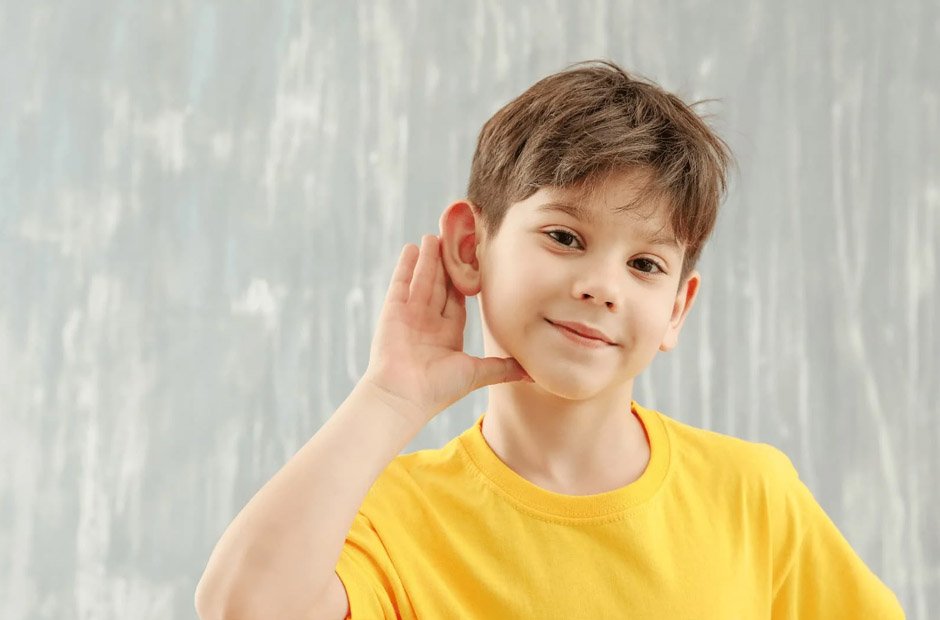Maintaining good ear health is essential for overall well-being and quality of life. Hearing is one of our most vital senses, connecting us to the world around us. Recognizing the early signs of auditory issues is crucial for timely intervention and treatment, which can prevent further deterioration and improve the chances of maintaining healthy hearing. This guide aims to help you understand the signs of auditory issues and the importance of regular ear checks.
Recognizing the Signs of Hearing Loss
Hearing loss can develop gradually, making it difficult to notice initially. It is essential to be aware of the subtle signs that indicate potential auditory issues. If you suspect any problems, seeking professional advice and getting hearing tests Marrickville can help diagnose and manage hearing loss effectively.
Difficulty Understanding Speech
One of the earliest signs of hearing loss is difficulty understanding speech, especially in noisy environments. You may find it challenging to follow conversations, often needing to ask people to repeat themselves or speak more slowly and clearly.
Frequent Misunderstanding
Frequently misunderstanding words or sentences can indicate hearing loss. You might hear part of a conversation but miss crucial details, leading to confusion and the need for clarification.
Increasing Volume on Devices
If you find yourself consistently increasing the volume on your television, radio, or phone to hear clearly, it could be a sign of hearing loss. Family members or friends might also comment on the volume being too loud for them.
Tinnitus
Tinnitus, or ringing in the ears, is a common symptom of hearing loss. It can manifest as ringing, buzzing, hissing, or other sounds that are not present in the external environment. Tinnitus can be constant or intermittent and may vary in intensity.
Difficulty Hearing High-Pitched Sounds
High-pitched sounds, such as birds chirping or children’s voices, are often the first frequencies affected by hearing loss. If you notice a decrease in your ability to hear these sounds, it might be time to get your hearing checked.
Social Withdrawal
Struggling to hear and understand conversations can lead to frustration and social withdrawal. You might find yourself avoiding social situations or group gatherings because of the difficulty in communicating effectively.
Muffled Hearing
A sensation of muffled hearing or feeling like your ears are plugged can indicate an auditory issue. This can occur suddenly or develop gradually over time.
Balance Issues
Hearing and balance are closely linked, as the inner ear plays a crucial role in maintaining balance. Experiencing dizziness, vertigo, or unsteadiness can be a sign of inner ear problems that may also affect hearing.
Causes of Hearing Loss
Understanding the potential causes of hearing loss can help in recognizing risk factors and taking preventive measures.
Age-Related Hearing Loss (Presbycusis)
Age-related hearing loss, or presbycusis, is a common cause of hearing impairment in older adults. It typically affects both ears and progresses gradually over time. Presbycusis is caused by the natural aging process and the cumulative effects of noise exposure, genetics, and health conditions.
Noise-Induced Hearing Loss
Exposure to loud noises, either from a one-time event like an explosion or prolonged exposure to high decibel levels, can damage the hair cells in the inner ear, leading to noise-induced hearing loss. This type of hearing loss is preventable by protecting your ears from loud environments.
Ear Infections and Inflammation
Chronic ear infections or inflammation can cause damage to the structures of the ear, leading to hearing loss. It is essential to treat ear infections promptly to prevent complications.
Earwax Buildup
Excessive earwax can block the ear canal and cause temporary hearing loss. Proper ear hygiene and regular ear checks can help prevent earwax buildup.
Ototoxic Medications
Certain medications can be ototoxic, meaning they can damage the inner ear and cause hearing loss. Common ototoxic medications include some antibiotics, chemotherapy drugs, and high doses of aspirin. Always discuss potential side effects with your healthcare provider.
Genetic Factors
Genetics can play a significant role in hearing loss. If there is a family history of hearing impairment, you may be at a higher risk of developing hearing loss.
Head Trauma
Injuries to the head or ear can cause damage to the auditory system, leading to hearing loss. Wearing protective gear during activities that pose a risk of head injury can help prevent this type of hearing loss.
Importance of Regular Hearing Checks
Regular hearing checks are essential for maintaining good ear health and early detection of auditory issues. Routine hearing tests can help identify problems before they become severe, allowing for timely intervention and treatment.
Early Detection
Early detection of hearing loss can significantly improve the chances of effective treatment and management. Hearing tests can identify even subtle changes in hearing ability, enabling you to take action before the condition worsens.
Preventive Care
Regular hearing checks can help monitor your ear health and identify any risk factors for hearing loss. Preventive measures, such as using ear protection in noisy environments and managing health conditions, can help preserve your hearing.
Improved Quality of Life
Addressing hearing loss promptly can improve your quality of life by enhancing communication, reducing social isolation, and preventing further deterioration. Hearing aids, assistive devices, and rehabilitation programs can help you maintain an active and fulfilling lifestyle.
Professional Guidance
Hearing health professionals can provide valuable guidance on managing hearing loss and maintaining ear health. They can recommend appropriate treatments, hearing aids, and lifestyle modifications to support your hearing needs.
Solutions for Managing Hearing Loss
If you are diagnosed with hearing loss, various solutions can help you manage the condition and improve your hearing ability.
Hearing Aids
Hearing aids are small electronic devices that amplify sound and improve hearing. They come in various styles and technologies, tailored to individual needs and preferences. A hearing health professional can help you choose the right hearing aid and ensure proper fitting and adjustment.
Assistive Listening Devices
Assistive listening devices (ALDs) can enhance sound in specific situations, such as watching television, talking on the phone, or attending lectures. These devices work in conjunction with hearing aids or independently to improve hearing in challenging environments.
Cochlear Implants
For individuals with severe or profound hearing loss who do not benefit from hearing aids, cochlear implants may be an option. Cochlear implants are surgically implanted devices that bypass damaged parts of the ear and directly stimulate the auditory nerve.
Auditory Rehabilitation
Auditory rehabilitation programs can help individuals with hearing loss improve their listening skills and communication abilities. These programs may include speech therapy, auditory training, and counseling to address the emotional and psychological aspects of hearing loss.
Lifestyle Modifications
Making lifestyle modifications can help manage hearing loss and protect your remaining hearing ability. These modifications may include reducing exposure to loud noises, maintaining a healthy diet, staying physically active, and managing chronic health conditions.
Understanding the signs of auditory issues and the importance of regular hearing checks is crucial for maintaining good ear health. If you experience any symptoms of hearing loss, seeking professional advice and getting hearing tests can help diagnose and manage the condition effectively. Early detection, preventive care, and appropriate interventions can significantly improve your quality of life and ensure that you continue to enjoy the sounds of the world around you. By staying informed and proactive, you can protect your hearing and overall well-being.








